Why is Fragile X research so important? Every advance in Fragile X brings us all closer to discovering treatments for autism and other brain disorders. We are truly grateful to everyone who has helped FRAXA fund groundbreaking research. Thanks to you, we have hope.
Read moreautism
Repurposing FDA-Approved Drugs to Treat Major Depressive Disorder in Fragile X Syndrome
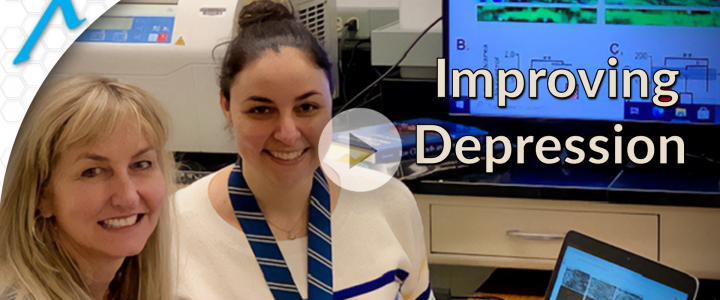
Did you know that depression is more common in those with autism and/or Fragile X? Even more disturbing is the discovery that current treatments for depression do not work in Fragile X mice. With this grant, the team will work to develop a rapid screening tool to identify FDA-approved drugs which can treat depression in people with Fragile X syndrome.
Read moremRNA Therapy for Fragile X Syndrome
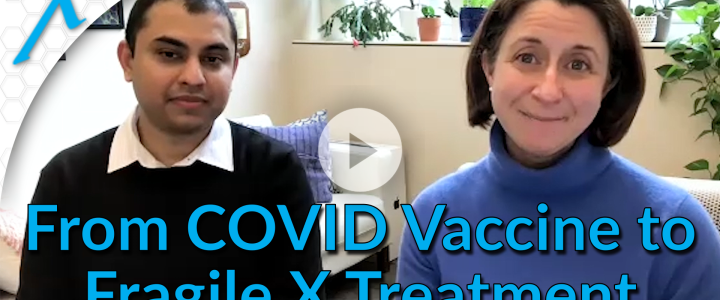
Dr. Kathryn Whitehead, Associate Professor at Carnegie Mellon University, helped develop the revolutionary science behind the COVID-19 vaccines. With a $103,000 grant from FRAXA, her team will now adapt this technology to deliver the missing Fragile X protein, to treat people who have Fragile X syndrome.
Read moreVLM Commodities Charity Week Raises $10,000 for Fragile X Research

“We are often asked how we can do this, live with the challenges of Fragile X, day in and day out” Lou shared, “It’s just what we do. We keep going forward. FRAXA gives life and purpose to our community. I look forward to Charity Week being an annual VLM event and supporting the work FRAXA does.”
Read moreAggression, Other Fragile X Behaviors Tend to Ease Over Teenage Years

Behavioral problems such as hyperactivity and aggression are generally more frequent in younger children with Fragile X syndrome, becoming less common as they grow through adolescence and journey toward adulthood, researchers report.
Read moreGordon Research Conference for Fragile X and Autism-Related Disorders, Explained
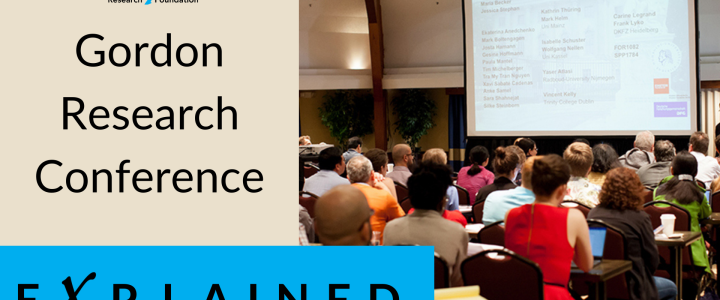
The Fragile X and Autism-Related Disorders Gordon Research Conference is a biannual event that provides an international forum for the presentation and discussion of frontier research in these conditions. Dr. Mike Tranfaglia explains why this is the premier conference for researchers and the scientific community.
Read moreRecruiting: BRIDGE Study (BRain Indicators of Developmental Growth)
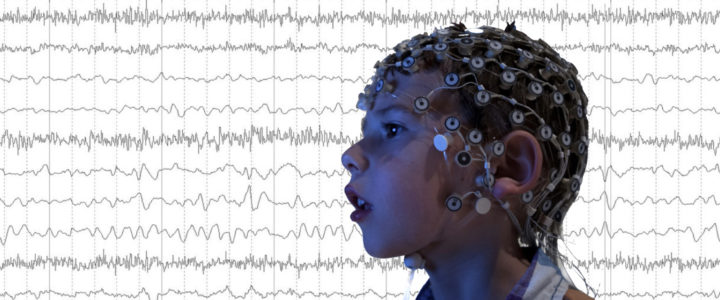
This study from the Wilkinson Lab at Boston Children’s Hospital is investigating how differences in brain activity affect learning, language and behavior in children with Fragile X syndrome, Down syndrome, and Autism Spectrum Disorder. One of the goals is to find brain markers that predict cognitive, language, and behavioral difficulties in these groups. Another goal is to better understand the differences in brain activity between young children with and without Fragile X and Down Syndrome, and whether these differences are similar in children with Autism Spectrum Disorder.
Read moreRecruiting: Clinical Study of Non-Invasive EEG for Children Ages 2-7
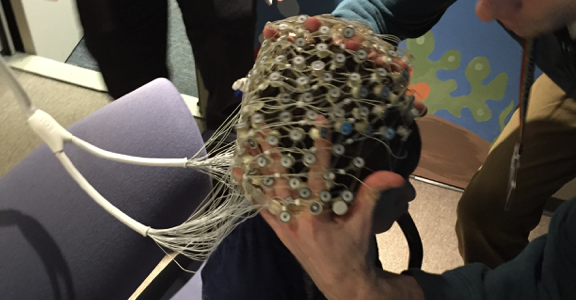
Dr. Carol Wilkinson, MD PhD, and Dr. Charles Nelson, PhD, at Boston Children’s Hospital are recruiting children ages 2-7 years with Fragile X syndrome to participate in a study of brain differences using non-invasive EEG.
Read moreReactivating the Fragile X Gene in Young Mice Reverses Symptoms

A new FRAXA-funded research project offers hope that Fragile X syndrome could be treated by reactivating the gene which is shut down in people with the syndrome. Researchers at the University of California, Riverside report that they were able to reduce FXS symptoms by inserting the FMR1 gene into the brains of very young mice.
Read more10 Year Vision for Collaborations That Transform Fragile X and Autism Research

The future offers hope for people living with Fragile X syndrome. Collaborations between the Fragile X community and other disability organizations help to provide understanding and advancement of research to bring effective treatments to families. FRAXA’s Dr. Mike Tranfaglia talks with Autism Science Foundation’s Allison Singer about the importance of their collaboration as we look forward to the next 10 years.
Read moreCannabinoids as a Treatment for Fragile X Syndrome
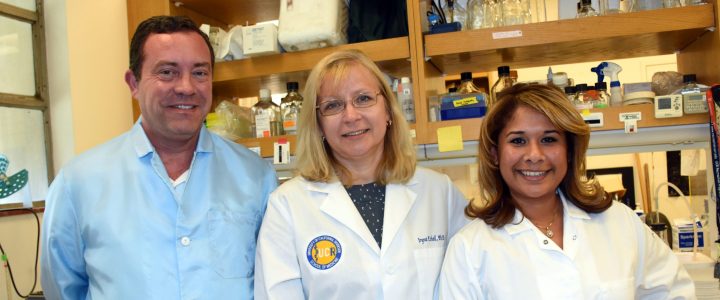
Many people with Fragile X syndrome are hyper-sensitive to sights and sounds, and Electroencephalography (EEG) studies show that there are abnormalities in brain circuits. EEG studies show similar changes in Fragile X mice. So the team will use EEG tests in mice to find which drugs best reduce hypersensitivity. They can then easily move on to human EEG-based clinical trials. What they learn will tell us much more about why people with Fragile X are hypersensitive – and which drugs could best help them.
Read more2021 Fragile X Research Grants Funded by FRAXA Research Foundation
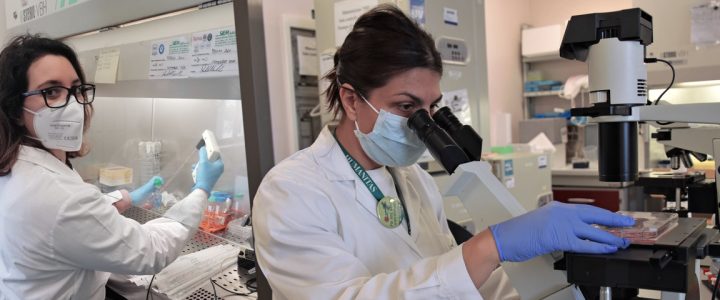
Each year, FRAXA funds a diverse portfolio of research. Our FRAXA Fellowships are seed funding for the future, the feedstock for the Fragile X treatment development pathway. While we are looking to promote as many promising new approaches as possible, prominent themes emerge each year, as scientists around the world tackle previously neglected areas.
Read morePromising Results of Preclinical Study of ANAVEX®2-73

We are excited to share that Anavex Life Sciences announced today that preclinical data of the ANAVEX®2-73 (blarcamesine) study in Fragile X syndrome were published in the peer-reviewed journal, Scientific Reports.
Read moreSynaptogenix Announced Intention to Launch a Fragile X Clinical Trial with Bryostatin

One of the most exciting kinds of work that FRAXA does is following the journey of an experimental new treatment until it is ready for trials in people with Fragile X. From an initial idea, through the development process, to clinical trials, FRAXA helps out all along the way. From an initial idea, through the development process, to clinical trials, FRAXA helps out all along the way. The recent announcement by Synaptogenix is a great example of how FRAXA funding and use of FRAXA-DVI can accelerate research on Fragile X.
Read moreFragile X Syndrome: In Pursuit of a Cure Webinar
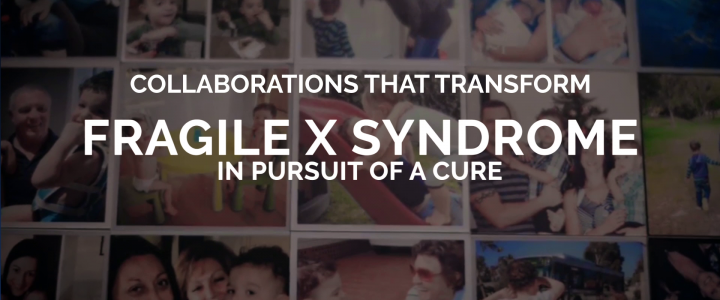
A global webinar titled “Fragile X Syndrome: In Pursuit of a Cure,” took place on July 22, 2021 to commemorate World Fragile X Day. This complimentary event is co-organized with WuXi AppTec. We are delighted that more than 5,000 registered from more than 50 countries worldwide, coming together to raise awareness of Fragile X, and to foster collaborations towards effective treatments and ultimately a cure.
Read morePreclinical Testing of High Fat/Low Carb Diets in Fragile X Mice and Cells
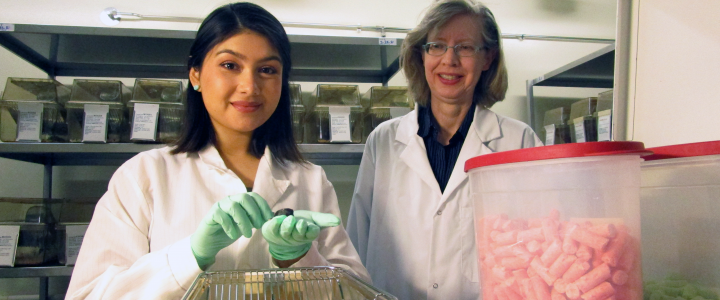
With a $90,000 research grant from FRAXA, Dr. Cara Westmark’s team will use mice to determine if more palatable Atkins-type diets can improve sleep and boost learning skills for those with Fragile X syndrome.
Read morePharmacotherapeutic Effects of Cannabidiol (CBD) in Fragile X syndrome (FXS) and Autism Spectrum disorder (ASD)

This study will test CBD (cannabidiol) treatment in male and female Fragile X mice to learn how and why it works and whether gender affects responses to CDB treatment. Along with clinical trials, this study will help us to understand and optimize the potential of CBD as a behavior-regulating treatment for Fragile X.
Read moreAuditory Dysfunction in Fragile X Syndrome in a Mouse Model of Fragile X
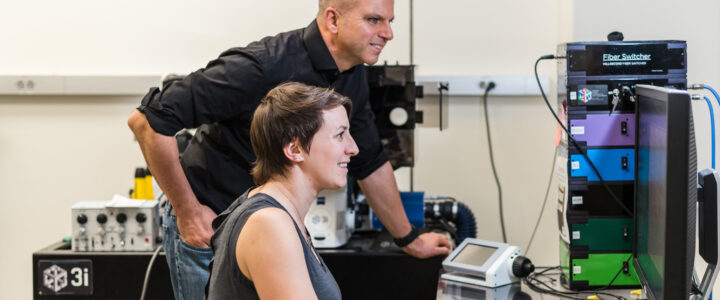
With a $90,000 grant from FRAXA, Dr. McCullagh and Dr. Achem Klug at the University of Colorado investigated whether auditory neural circuits are altered in Fragile X mice. They saw minor differences in these mice compared to B6 (control) mice in several measures of auditory acuity. Fmr1 mice had increased latency to the startle response for almost all conditions compared to B6 mice, suggesting altered timing to acoustic cues. These experiments show that, consistent with patient reports and anatomical/physiological data, the auditory system is altered in a mouse model of FXS, though with some potential compensation leading to a subtle behavioral impact.
Read moreTowards Understanding the Role of FMRP in Human Brain Development Using Brain Organoids
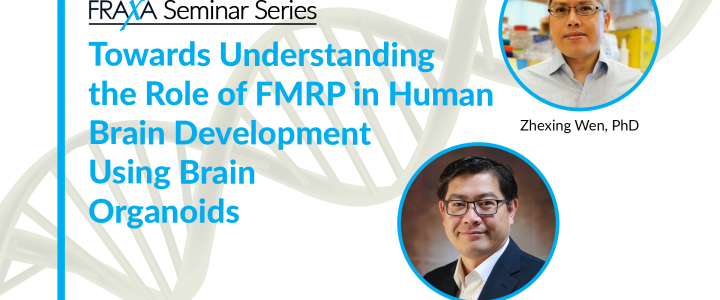
Dr. Zhexing Wen and Dr. Peng Jin of the newly funded Fragile X Center of Excellence at Emory University School of Medicine join us in this seminar to present about Understanding the Role of FMRP in Human Brain Development Using Brain Organoids.
Read moreBryostatin-1 in Long-term Use Seen to Arrest Fragile X Symptoms in Mouse Model
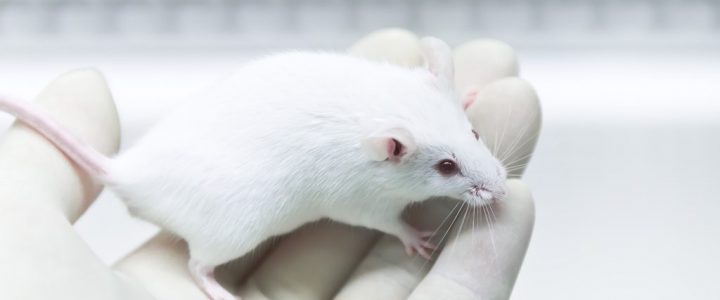
Long-term, but not short-term, treatment with bryostatin-1 — Neurotrope’s lead investigational therapy — arrested such behavioral and cognitive symptoms as hyperactivity, difficulties with daily life activities, and learning and memory deficits in a mouse model of Fragile X syndrome.
Read moreAllos Pharma Revives Arbaclofen After 7 Years: New Hope for Fragile X Syndrome

Experience the revival of arbaclofen as Allos Pharma Inc launches a new development program, providing renewed hope for the Fragile X community. Discover the impact of this experimental drug and the determination of those who never gave up.
Read morePositive Results Reported in Phase II Fragile X Clinical Trial of PDE4D Inhibitor Zatolmilast from Tetra Therapeutics

Today, Tetra Therapeutics announces the first unequivocally positive phase 2 clinical trial in Fragile X syndrome, press release below. The results do not depend on carving out a subset of patients or post hoc analysis.
Read moreUse of EEG as a Biomarker for Diagnosis and Outcomes in Neurodevelopmental Disorders
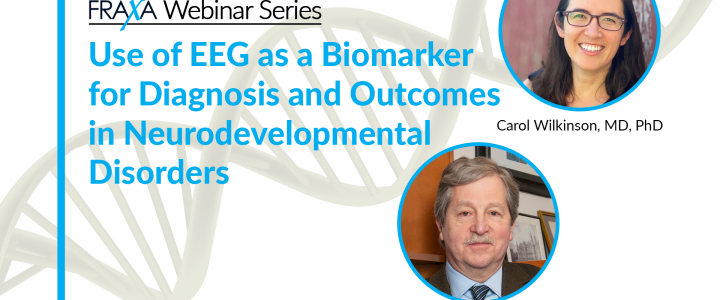
A series webinars focused on current topics in Fragile X research featuring Charles A. Nelson III, PhD, Professor at Harvard Medical School and Carol Wilkinson, MD, PhD, Instructor at Boston Children’s Hospital.
Read moreGenome-wide Screen for FMR1 Reactivation in Human FXS Neural Cells
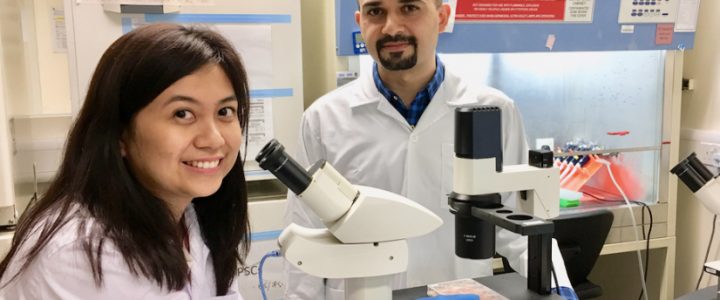
Drs. Mahmoud Pouladi and Kagistia Utami at the Agency for Science, Technology and Research (A*STAR) in Singapore were awarded a $67,500 research grant from FRAXA Research Foundation and that led to much greater governmental funding to expand this work. Their goal is to reactivate the gene which is silenced in people who have Fragile X syndrome.
Read moreHealx Drug Repurposing Programme for Fragile X Syndrome
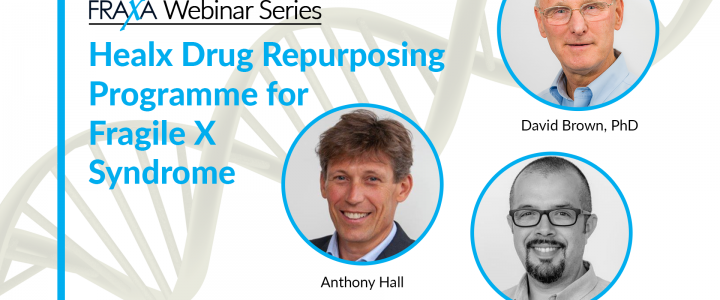
David Brown, MD, PhD, Ivan Angulo-Herrera, PhD and Anthony Hall of Healx present about the Drug Repurposing Programme for Fragile X syndrome.
Read more
